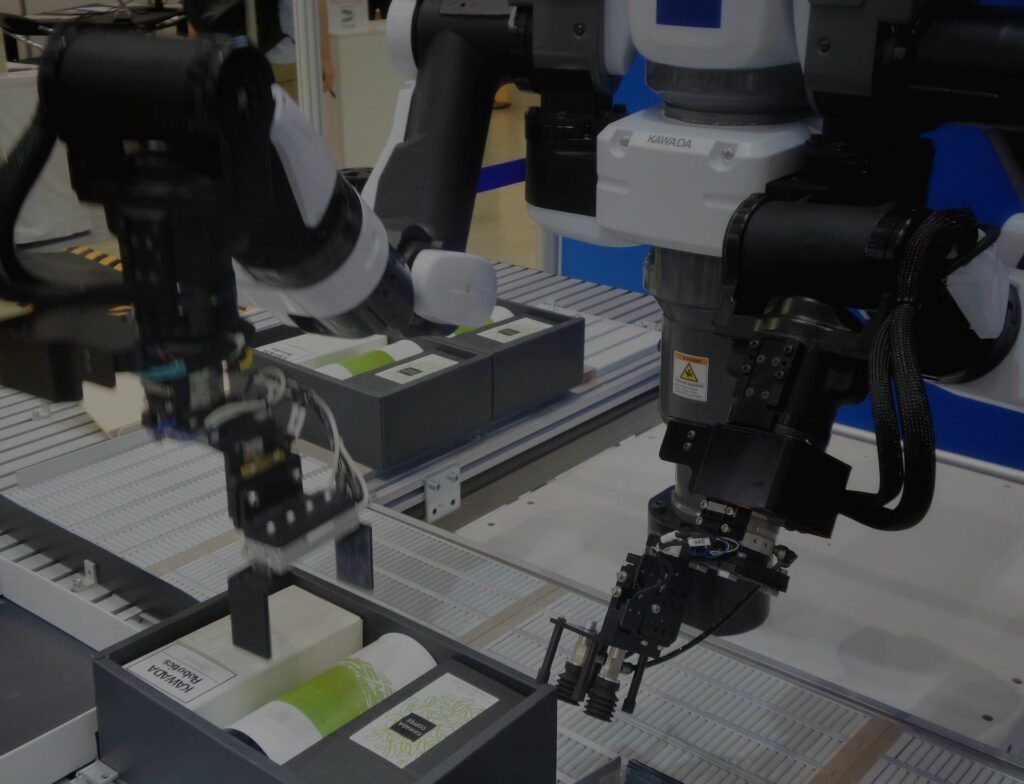Project Assistance and Support

We provide you Engineering Project Guidance for AI/ML and Electronics industries and
students with full support.
The Project Guidance Is Available For:
- Industrial Projects in Electronics and Computer Science
- Guidance to B.Tech, M.TEch, M.Sc, Ph.D students
The Key Activities
- Problem identification/li>
- Formulating the Problem
- Extensive Literature Review
- Developing the objectives
- Requirements elicitation
- Preparing the Research Design including Sample Design
- System analysis and specification
- Collecting the Data
- System design
- Module implementation and system integration
- System test and evaluation/ Analysis of Data
- Verification and Validation / Generalization and Interpretation
- Documentation
- Project management
Major Domains:
- Artificial Intelligence & Machine Learning
- Robotics
- Computer Vision
- Electronic Product Development & Embedded systems – Arduino, Raspberry Pi
- FPGA
- MATLAB
- LabVIEW
- Internet of Things
- Python, C++
Completed Projects:
The Hypertensive Disorders of Pregnancy (HDPs) are one of the main factors affecting maternal mortality globally and early diagnosis can lead to a significant reduction in maternal and fetal mortality. Preeclampsia typically occurs in the third trimester and early diagnosis is essential for maternal and fetal health. The current practice is to use blood pressure measurements to identify pregnant women with the risk of hypertensive disorders and use blood and urine analysis to further identify the possibility of preeclampsia. However, the shortage of adequate laboratory facilities in rural India is a major bottleneck in the diagnosis and management of pre-eclamptic women. The proposed solution addresses this problem by developing a device that measures all relevant biophysical and biochemical parameters relevant for preliminary screening of women with preeclampsia and which can be operated by semiskilled health workers. In the initial prototype model developed in the Arduino UNO platform, we propose a portable, and wireless device for the early diagnosis of HDPs by monitoring the blood pressure levels using the oscillometric method, measuring the creatinine and uric acid levels using a strip-based electrochemical sensor, measuring the albumin content using a fluorescence-based biosensor. A completely novel method for early detection of preeclampsia by measuring the sFLT-1/PIGF ratio also proposed. In this work, we are coming up with a proof-of-concept model as a single device to integrate the three different sensing techniques in which the electrochemical sensing and fluorescence sensing techniques of biomarkers are experimentally proved using blood glucose level measurement followed by appropriate calibration. https://ieeexplore.ieee.org/document/9865770
Alzheimer's disease (AD) is a progressive mental deterioration and incurable neurodegenerative disease that can occur in middle or old age, due to generalized degeneration of the brain. Because of the irreversible nature of the progression of Alzheimer's disease, the early diagnosis of AD has an immense clinical, social, and economic need. This research output proposing a state-of-the-art, easy, and early automated deep learning-based system to predict AD from a large MRI dataset of normal and diseased subjects. It classified the database of 111 subjects into Mild Cognitive Impairment (MCI), Alzheimer's disease (AD), and Normal classes. Classification tools like Support Vector Machines (SVM) and different models of Deep Neural Network (DNN) algorithms were tested. Deep learning algorithms were offering high accuracy of about 80-90% on AD prediction. For the prediction of diseases such as Alzheimer's, Dementia, and Parkinson's, applying highly accurate computational-automated machine learning-tools will help to diagnose the disease in the early stage itself and provide a better clinical, social and economic outcome. https://iopscience.iop.org/article/10.1088/1742-6596/1921/1/012024
This work proposes an efficient lie detection technique based on the non-invasive
method that involves only recording the subject's speech utterances. Discriminative
and meaningful features are extracted from the speech and classifiers are built based
on SVM to discriminate between truth and lie. The classifier will be trained
efficiently so that a better performance can be obtained compared with existing lie
detectors.
https://iopscience.iop.org/article/10.1088/1742-6596/1921/1/012028
Development of an Automated Calibration and Testing System for TDK Lambda series and Xantrex series of Power supplies using Virtual Instrument of NI’s LabVIEW software.
A DC Motor testing facility (Motor Test Rig) for monitoring and logging of parameters based on virtual instrument (LabVIEW) and microcontroller (ATmega328 – Arduino UNO).
A really wonderful 4 days of skill development. Also got to engage in a different kind of atmosphere with 2 great resource persons

